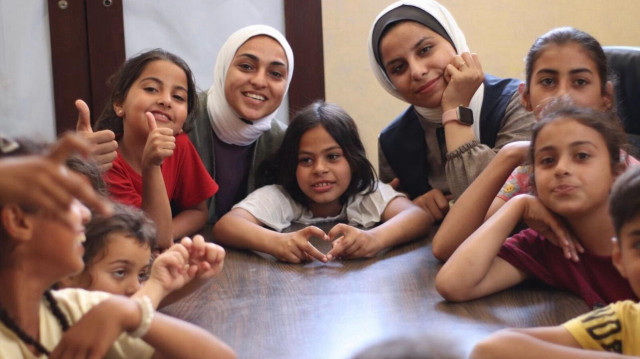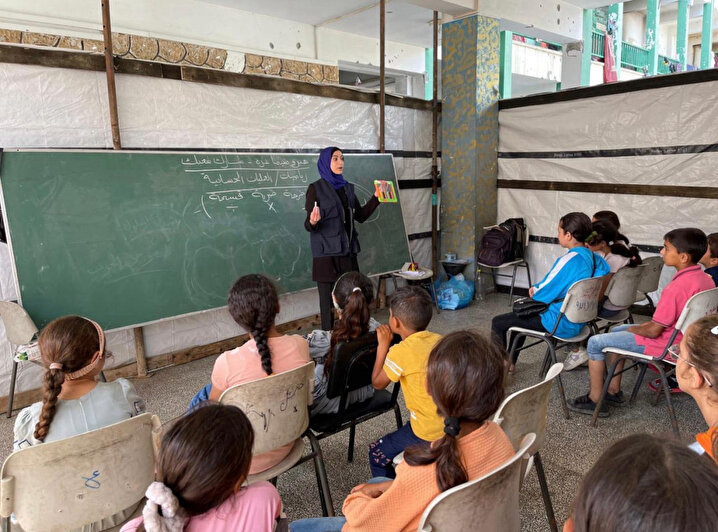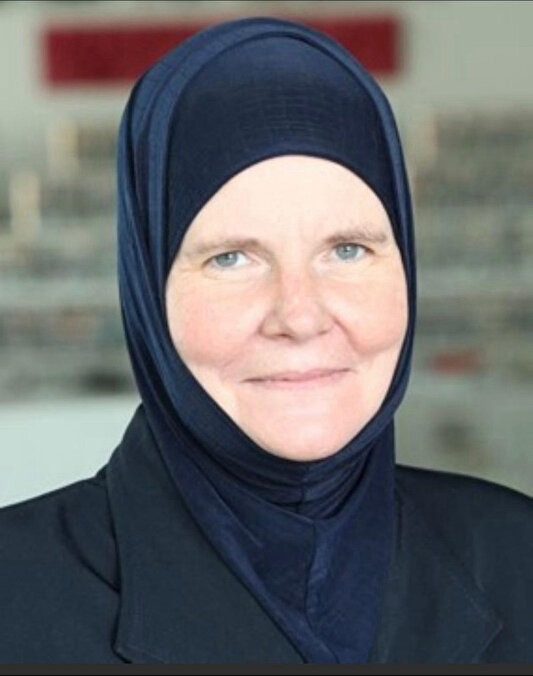
As the conflict in Palestine casts a global spotlight on Gaza, it is crucial to amplify stories of hope, resilience, and empowerment. At the Education Above All (EAA) Foundation, we have witnessed first-hand the transformative power of education in Gaza—these transformations that go beyond classrooms, shaping the futures of individuals, families, and communities.
Education Above All Foundation has supported more than 19 million beneficiaries globally, including thousands in Palestine. We have stood beside Gaza throughout its recent years of conflict; after the 2009 and 2014 hostilities, EAA Foundation implemented projects which included emergency medical supplies, psychosocial support and disability services, as well as the reconstruction and rehabilitation of over 90 educational institutes throughout the Gaza strip. As a response to the 2023 War on Gaza, EAA Foundation has empowered youth to implement initiatives in Gaza related to education, psychological first aid, health, food and clean drinking water. These initiatives have reached over 92,000 vulnerable IDPs to date.

Through the many years we have worked in Palestine, and specifically inside the unique context of Gaza, we’ve learned critical lessons about fostering resilience and empowering youth in one of the world’s most fragile contexts. If anything good can come from this devastating situation, let it be the knowledge we can share, that might help others dealing with children and youth in crisis contexts.
Before we look at lessons learned, let us take a moment to remind ourselves of the scope of devastation facing the education sector in Gaza. As of September 2024, approximately 625,000 children have been deprived of formal education due to the destruction of educational facilities and the use of schools as shelters for displaced families; 87% of schools in Gaza have been hit, and all 12 higher education institutions in the Gaza Strip have been damaged or destroyed. Of those left standing, at least 133 schools are serving as shelters for some of the over 1.9 million displaced people. We cannot wait for the dust to settle to act.
Education in Gaza is not merely about acquiring knowledge—it is a lifeline. Traditionally, higher education provides young people with a pathway to self-sufficiency. However, in a context where aid dependency has become an unfortunate norm, education must also be designed to break cycles of reliance.
At EAA Foundation, we have embraced an approach that goes beyond traditional intervention. By integrating components of civic engagement and psychosocial support into all our programs, we ensure that students are not only academically equipped but also emotionally resilient and socially conscious. We give our beneficiaries the tools to rebuild their communities, advocate for their rights, and contribute meaningfully to society. This approach leads to internally-driven sustainability, rather than a constant dependence on outside guidance, assistance and aid.
Years of conflict have left deep scars on Gaza’s youth. For students living under the constant threat of violence, trauma is a daily reality. For parents, teachers, and others who shape the lives of children and youth, the effects of trauma can have secondary repercussions that resonate throughout society. Education, therefore, cannot succeed in isolation from mental health and emotional well-being. EAA Foundation understands the critical role of psychosocial support, incorporating components such as Psychological First Aid (PFA) and trauma-informed care into our education and community initiatives. EAA Foundation’s interventions integrate psychosocial support at every stage. From counseling sessions to peer support groups, we believe in creating spaces where students and caregivers can process their experiences and build resilience. With this holistic approach, students not only achieve academic success but also develop the emotional fortitude to navigate the challenges of living in incredibly difficult circumstances.
One of the fundamental lessons from our work in Gaza is the importance of localizing initiatives. Global frameworks often fail to address the specific cultural, social, and economic realities of marginalized communities. Nowhere is this more evident than in the unique context of Gaza.
Our partnerships with local universities, community leaders, and grassroots organizations have been instrumental in shaping programs that resonate with Gaza’s youth and satisfy their unique needs. From leveraging local expertise to tailoring civic engagement workshops to address Gaza’s unique challenges, localization serves to ensure that our initiatives are both effective and sustainable.
Perhaps the most profound lesson from Gaza is the boundless potential of youth-led initiatives. Empowering young people as agents of change creates ripple effects that extend far beyond individual lives. In the midst of the latest war, we have empowered over 800 youth volunteers to spearhead 365 initiatives (and counting), addressing critical issues like hygiene, education, food, water, and community rebuilding. Examples of these amazing efforts include the provision of recreational and educational support for displaced children, as well as health initiatives that have reached nearly 10,000 beneficiaries through awareness campaigns focusing on reproductive health during crises, infectious diseases, and PTSD coping strategies. These projects demonstrate how empowering young people instills a sense of agency and purpose in Gaza’s youth, transforming communities even in the direst circumstances.
As we reflect on the lessons learned through EAA Foundation’s work in Gaza, one truth stands out: education is not just an investment in individuals; it is an investment in the future of Gaza, Palestine, and the world. By empowering youth with the tools to lead, innovate, and rebuild, we are sowing the seeds of lasting change.
As we continue to witness turmoil in Gaza, let us recommit to the belief that every young person, regardless of their circumstances, deserves the opportunity to learn, grow, and contribute. And let us remember that in places like Gaza, where challenges are immense, the impact of education is nothing short of transformative.

This opinion editorial has been submitted by the Education Above All Foundation Communications team on behalf of the author. The editorial reflects the opinions of the author.
About the Education Above All (EAA) Foundation
The Education Above All (EAA) Foundation is a global foundation established in 2012 by Her Highness Sheikha Moza bint Nasser. EAA Foundation aims to transform lives through education. We believe that education is the single most effective means of reducing poverty, creating peaceful and just societies, unlocking the full potential of every child and youth, and creating the right conditions to achieve Sustainable Development Goals (SDGs).
Through our multi-sectoral approach, unique financing models, focus on innovation as a tool for social good, and partnerships, we aim to bring hope and real opportunities to the lives of impoverished and marginalised boys and girls. EAA Foundation is comprised of the following programmes: Educate A Child (EAC), Al Fakhoora, Reach Out To All (ROTA), Protect Education in Insecurity and Conflict (PEIC), Innovation Development (ID) and Together project.

